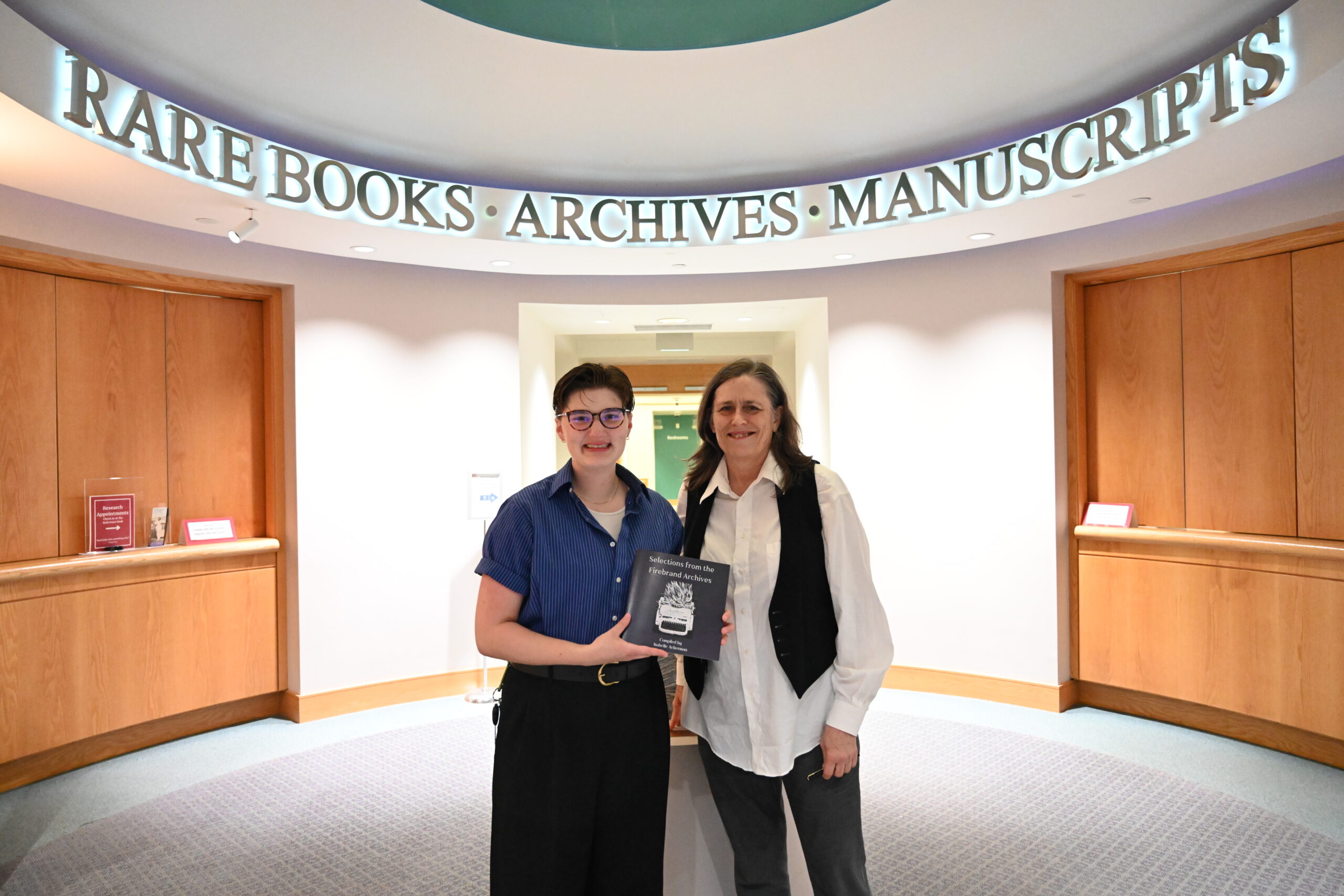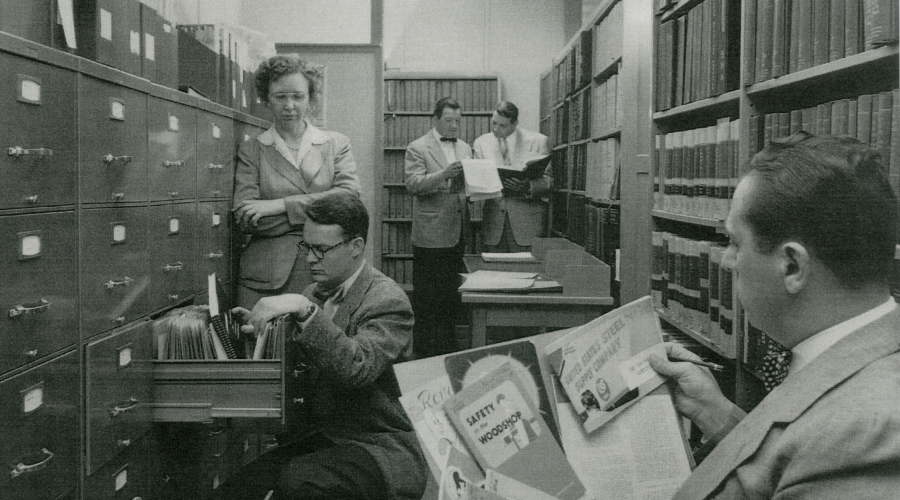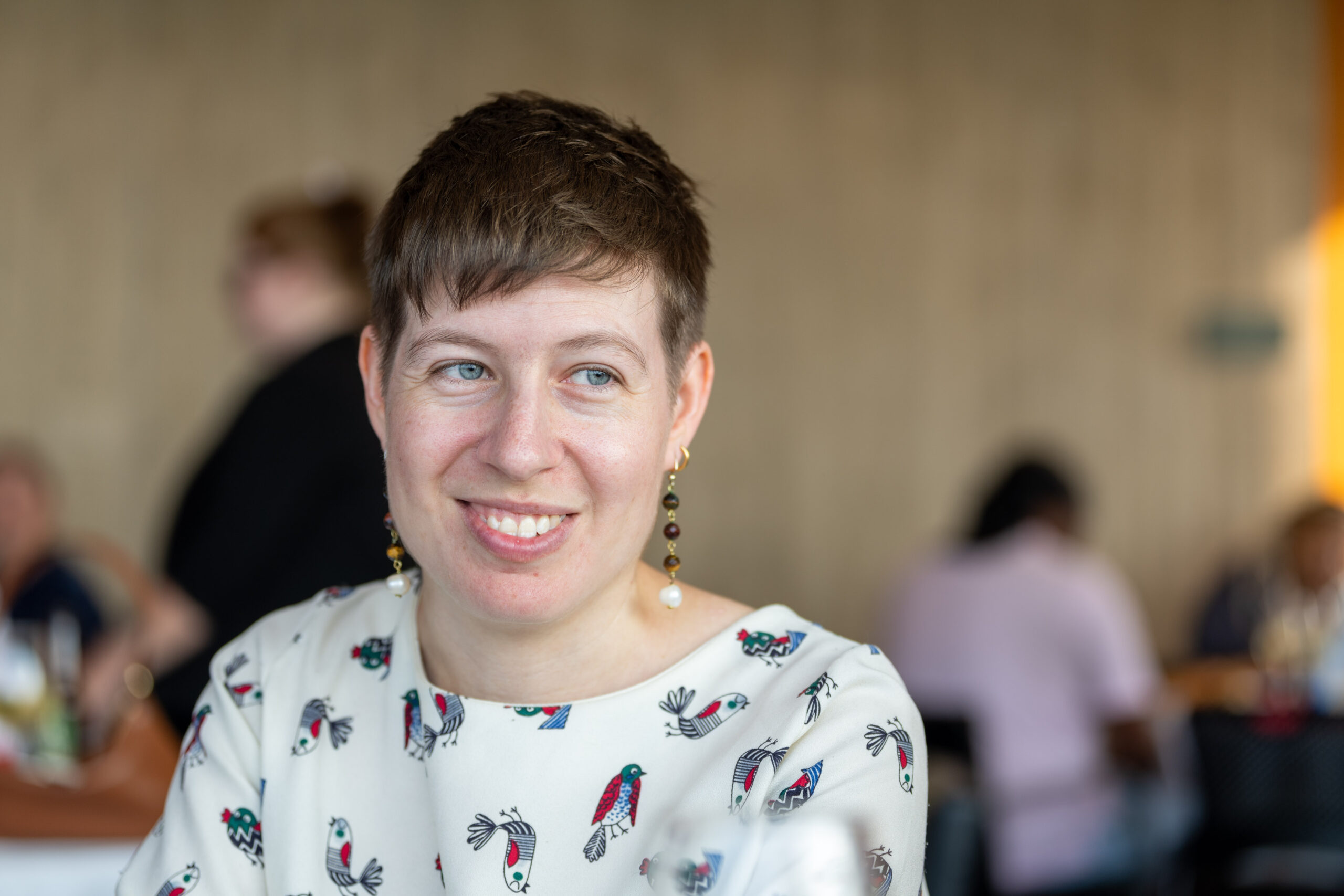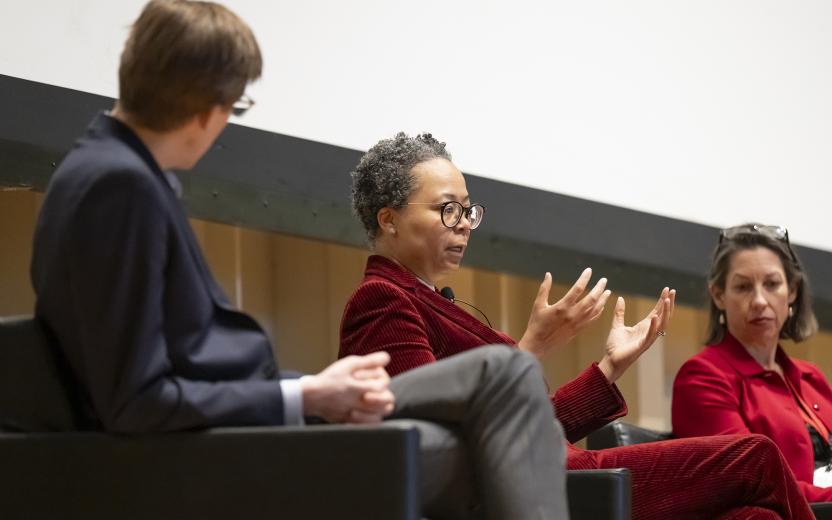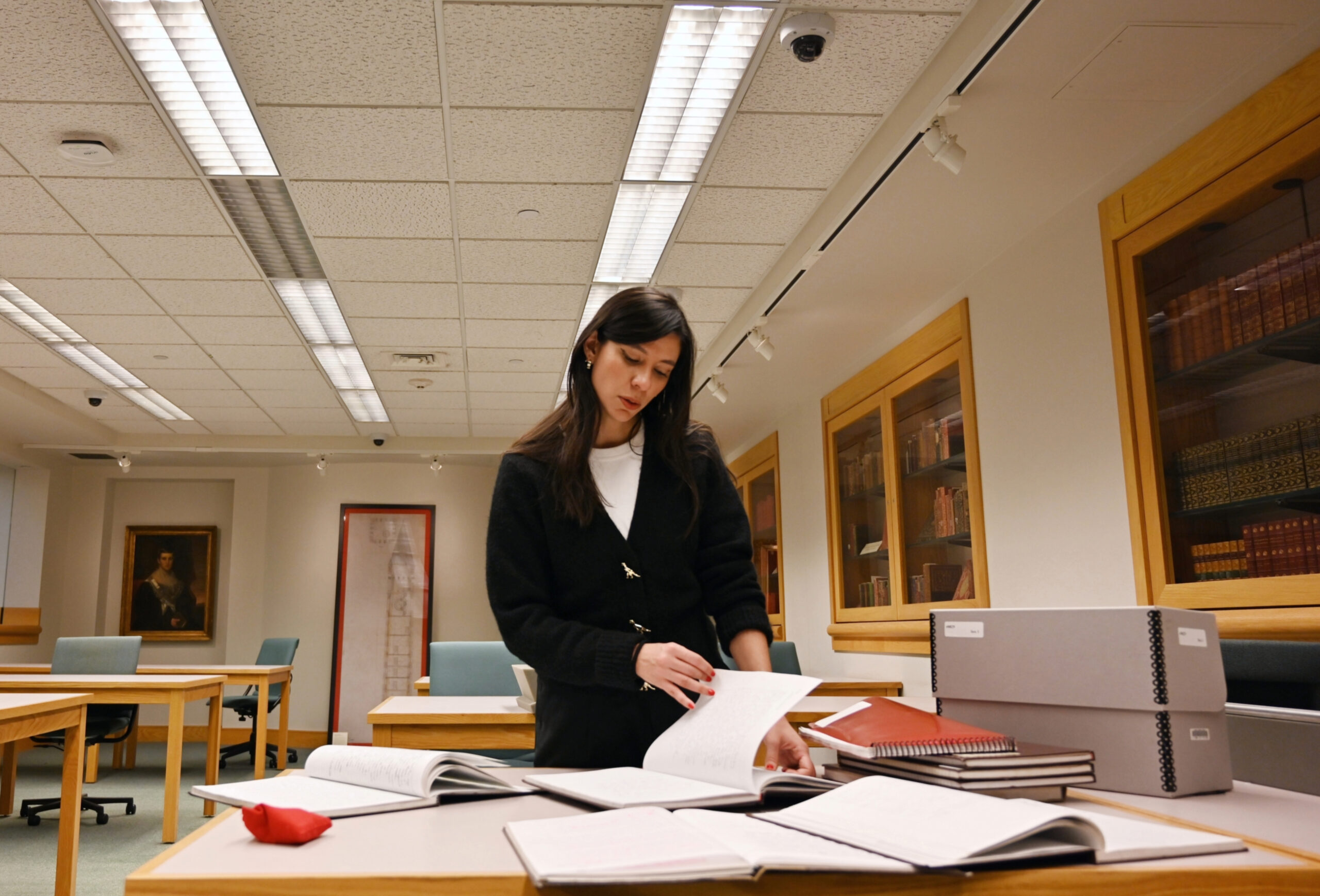
When more than 7,000 Cornell alumni came back to campus on June 6-8 for Reunion, Cornell University Library was ready to roll out the proverbial Big Red carpet with activities and attractions across various library locations on campus. Nearly 1500 Reunion attendees came to events hosted by the library.
Family-friendly activities combined learning and fun, including children’s book readings under one of the Arts Quad tents and a scavenger hunt involving several libraries, from Clarke Africana Library to Uris Library. The Math Library, in particular, attracted droves of parents and young children with hands-on demonstrations featuring geometric sculptures and toys.
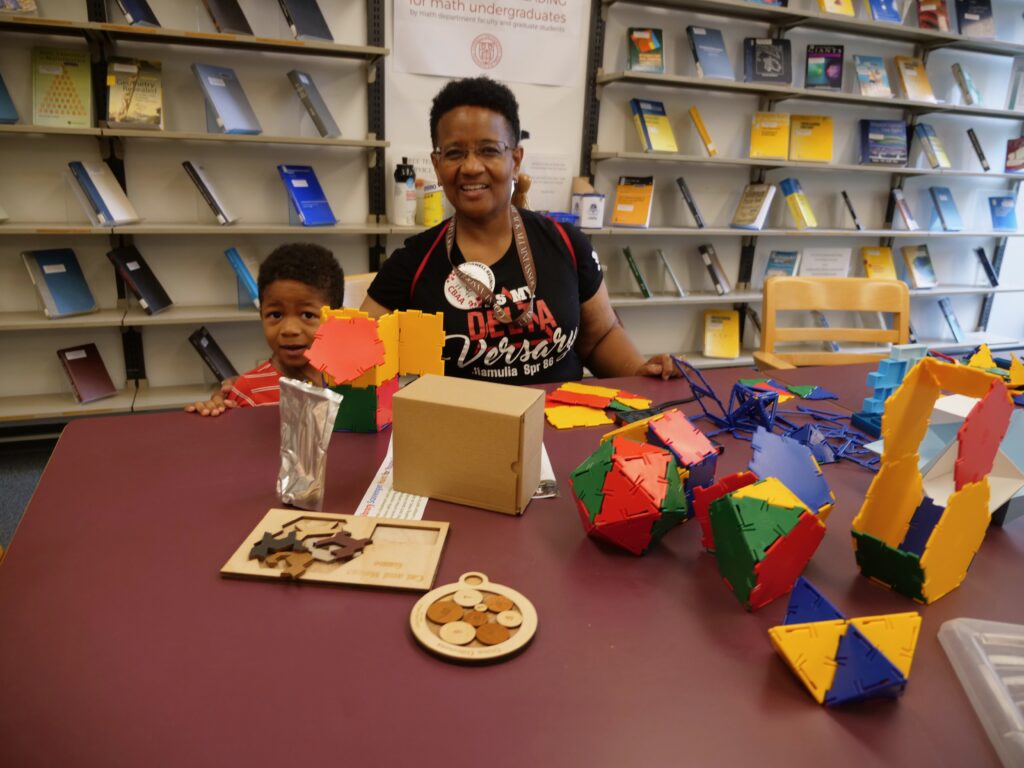
Cornell University Library also offered several educational workshops and presentations.
At the Cornell Law School, Kim Nayyer—Edward Cornell Law Librarian, associate dean for library services, and law professor—discussed the impact of big data and generative A.I. on the practice and study of law. Her talk was titled “Truth, Lies & Gen A.I.: Research, Risks, and Responsibility” and was part of Cornell Law School’s continuing legal education program.
From Tokyo, Japan, Yukiko Araki, LLM ’94, attended the talk with hopes of learning how artificial intelligence might help legal professionals do their jobs more efficiently.
“I graduated 30 years ago. Now the landscape is totally changed,” Araki said. She was also excited to visit the Law Library again, which she describes as “one of best libraries” she’s visited throughout her travels.
At another presentation, curator Brenda Marston showcased LGBTQ-related books, photographs, and artifacts from the Cornell Human Sexuality Collection in honor of Pride Month.
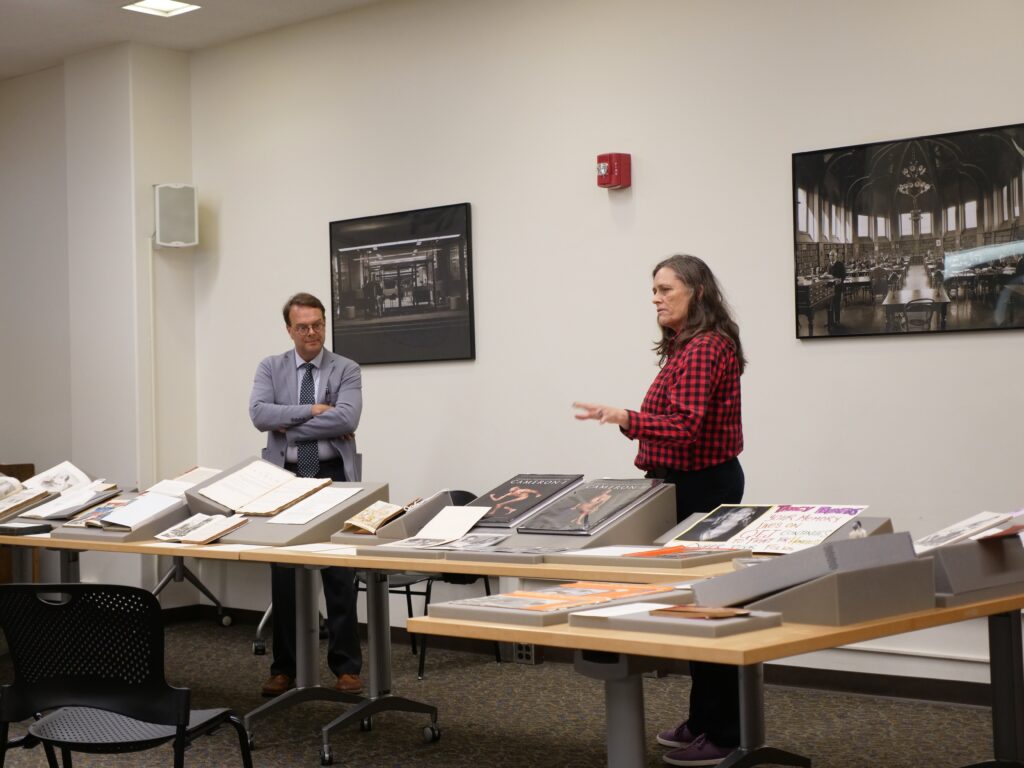
“Browsing the Reunion schedule, it popped out for both of us,” said Austin Serling ’19, who attended the presentation along with fellow Hotel School alum Marissa Block ’19. The showcase was an opportunity to explore other areas of Cornell, according to Serling.
“It was also something we didn’t get much exposure to as undergrads since we were in a different program,” he said.
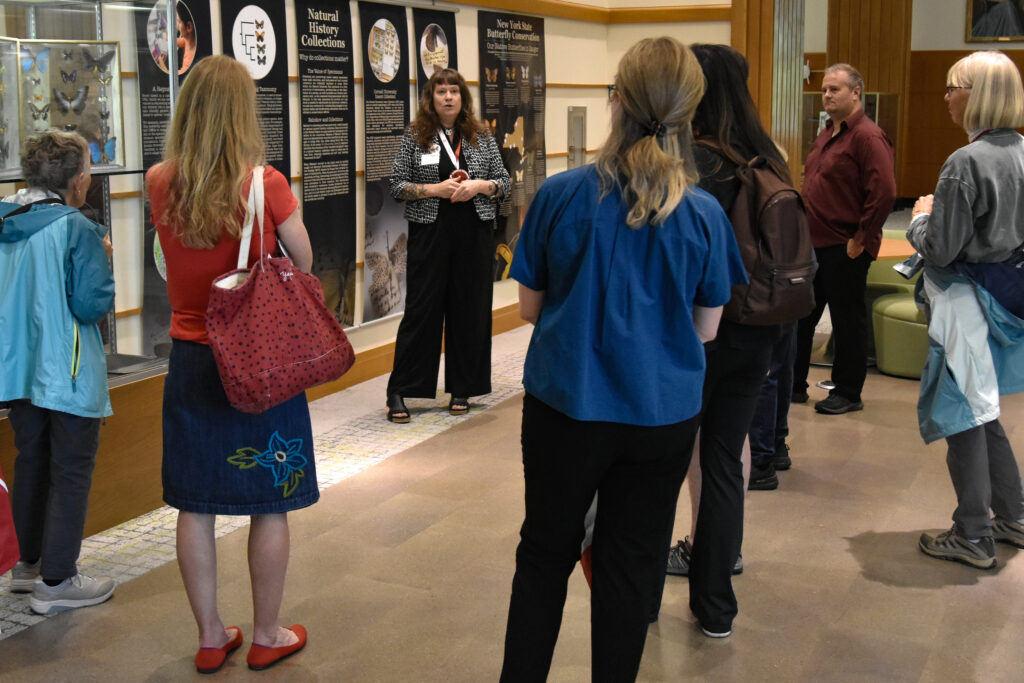
Several exhibits showcased collections vital for research and scholarship: Mann Library focused on Nobel laureate Vladimir Nabokov’s contributions to butterfly science with a series of exhibits, tours, and other activities. Kroch Library featured a display exploring eclipses and an exhibit paying tribute to the life and work of Joyce Brothers ’47, a human ecology alumna who popularized media psychology. At the John Henrik Clarke Africana Library, a new display celebrated the legacy of James E. Turner, a pioneer in the field of Black Studies and the founding director of the Africana Studies and Research Center at Cornell. Catherwood Library also premiered an exhibit honoring another trailblazer, Frances Perkins, a workers’ rights advocate who became the U.S. Secretary of Labor and later lectured in Cornell’s ILR School.
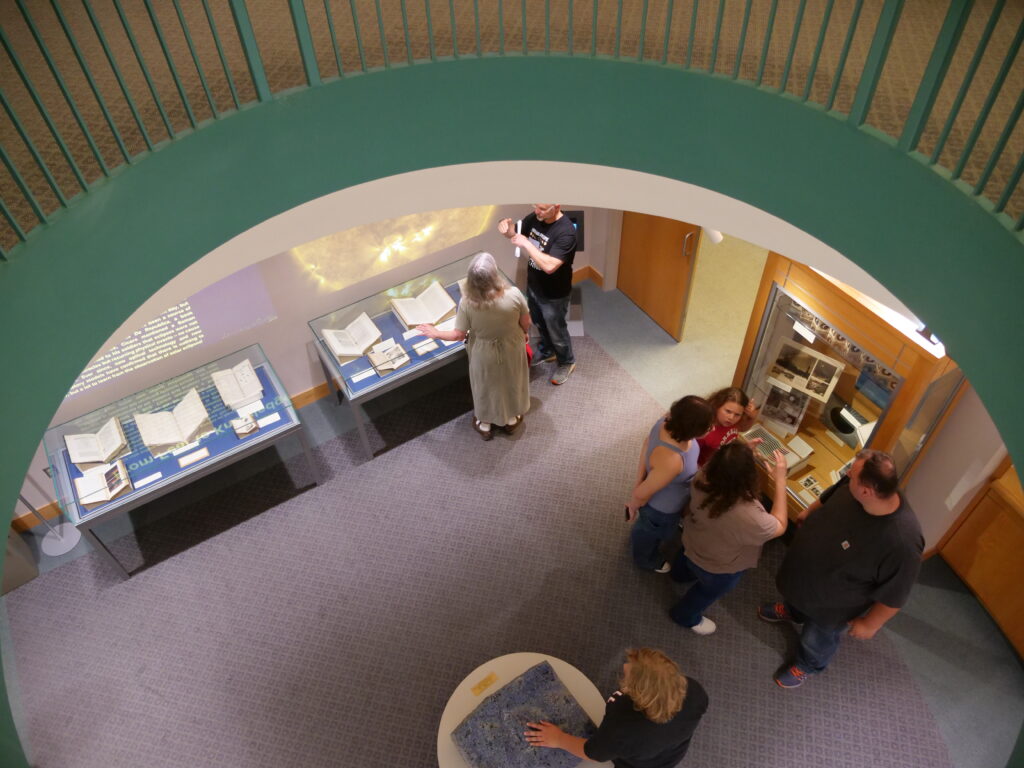
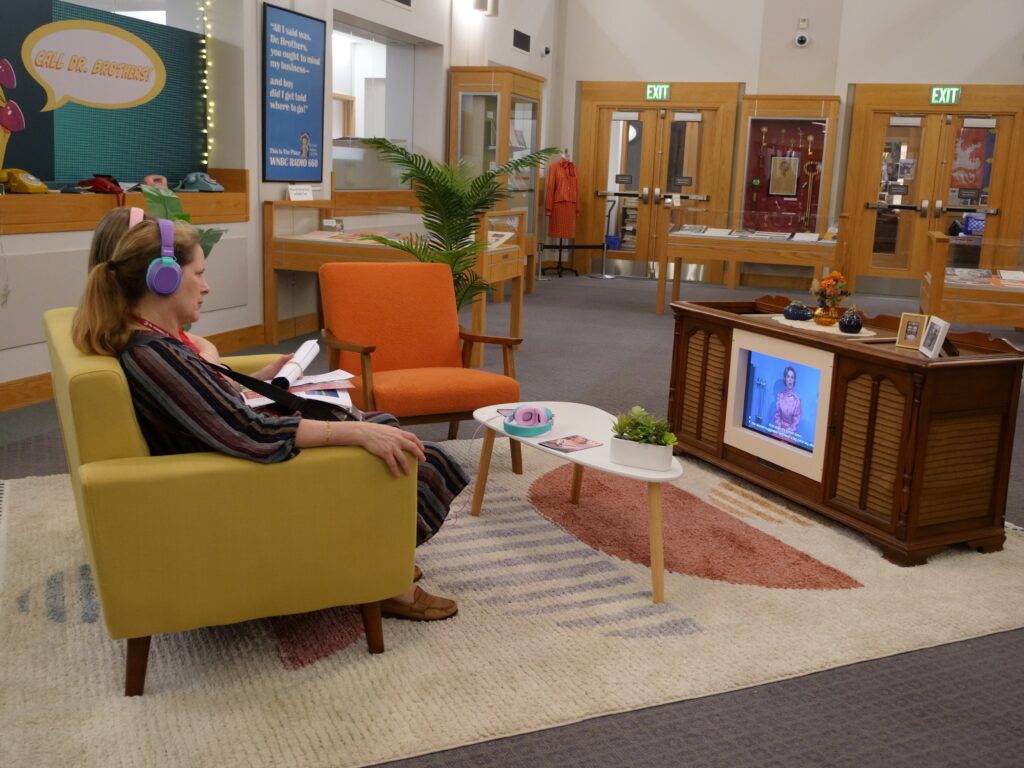
Government alumnus Ed Furey ’69 and his wife, Jane Loughlin, visited the Catherwood exhibit out of their admiration for Perkins’ legacy, including her advocacy on behalf of workers and her contributions to what later became the Social Security Act.
“Here we are, benefiting from it,” said Furey, who was also a fan of Perkins’ book The Roosevelt I Knew.
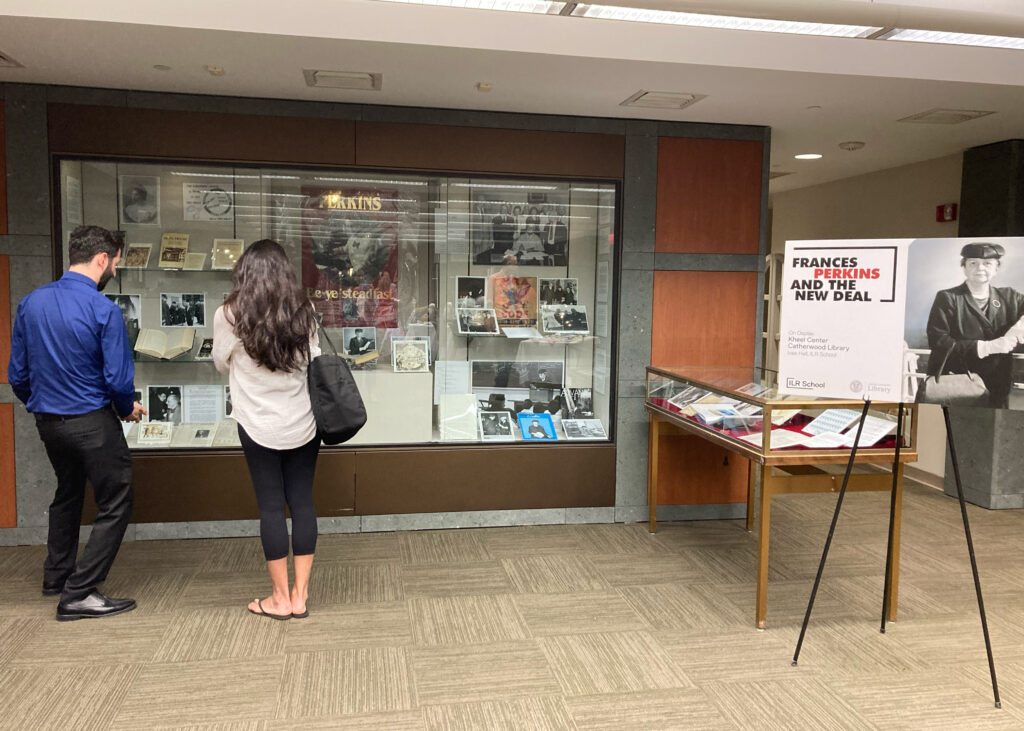
Alumni also gathered for a special viewing of Abraham Lincoln’s handwritten copy of the Gettysburg Address, along with other irreplaceable materials from the Rare and Manuscript Collections and Kroch Library Asia Collections. It was one of the library’s most popular events, with a queue of more than 450 visitors stretching the length of the Kroch Library hallway.
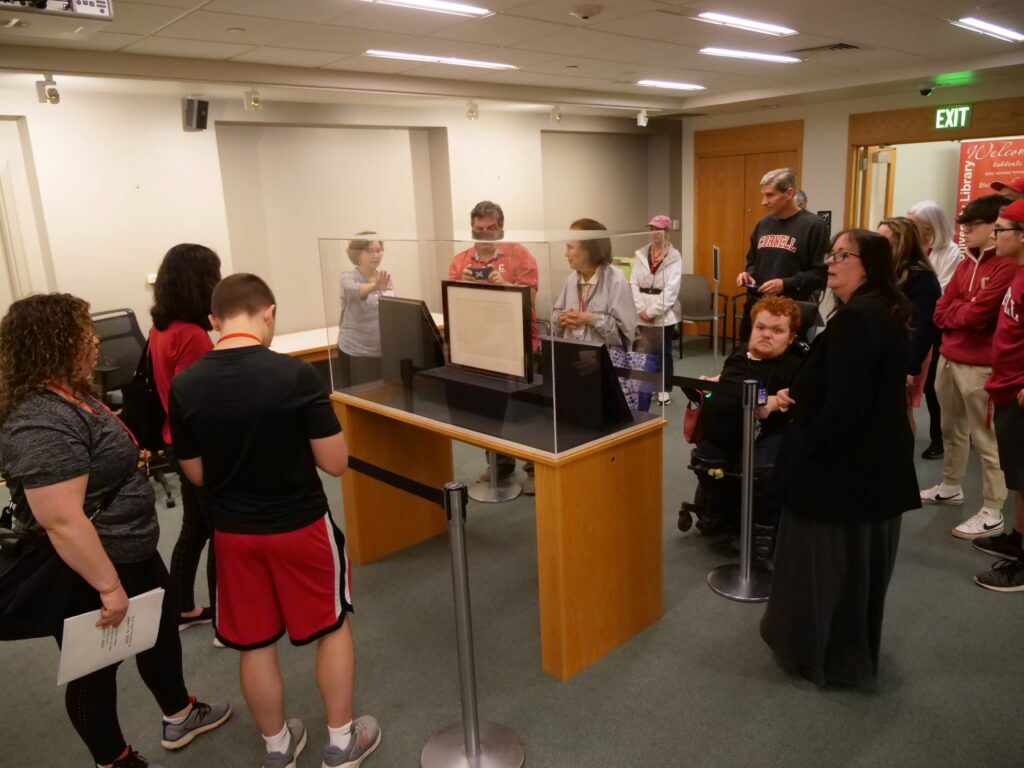
Another highlight for Reunion was “Cornell Prison Education Program (CPEP) and Cornell University Library: Past, Present, and Future,” a panel discussion on a partnership that provides incarcerated students with access to vital information.
“I was fortunate to enroll in the Cornell Prison Education program at that time and it was just life changing in many ways,” said guest speaker Darnell Epps ’21, who founded a career-building and networking platform for skilled workers.
“Recently, I was able to walk Commencement with my son and my daughter at Yale Law School, which was a tremendous achievement,” he said. “I couldn’t have done it without the support of CPEP, without the support of all the faculty here at Cornell that really helped catapult me to where I’m at today.”
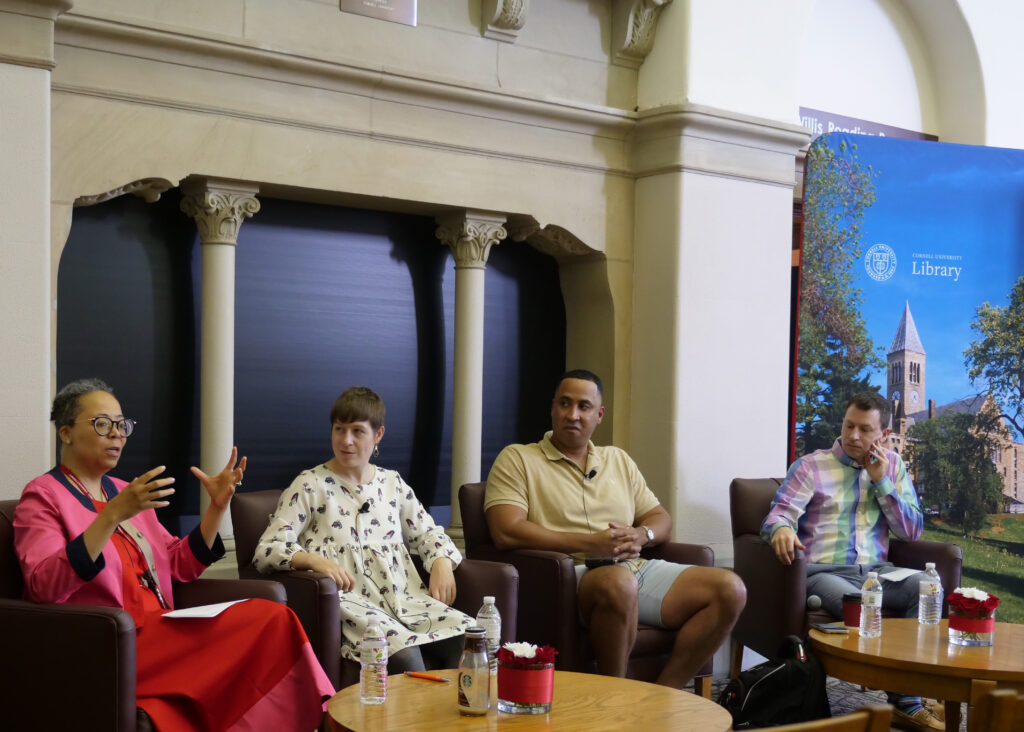
Elaine L. Westbrooks, Carl A. Kroch University Librarian, emphasized the library’s role in contributing to Cornell’s mission of providing educational access to any person in any study, including incarcerated students.
“We’re in the business of making information available and being a bridge to knowledge,” she said. “The CPEP program really forces us to double-down on that access mission.”

